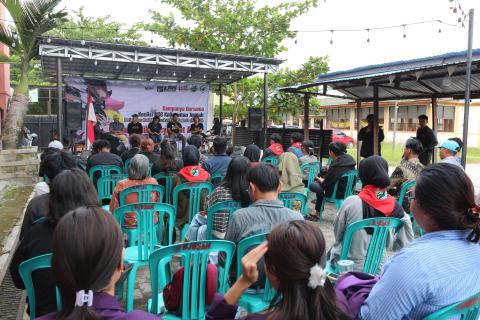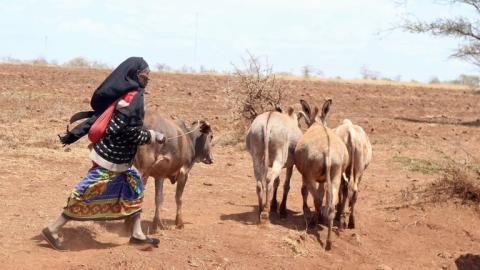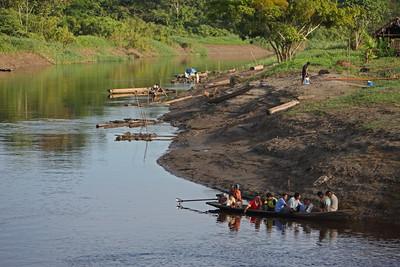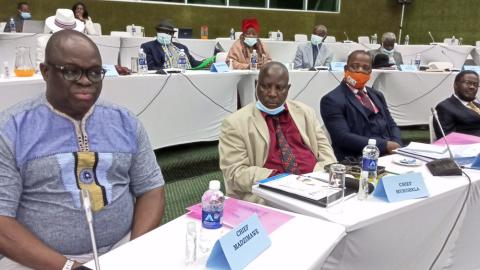Discover hidden stories and unheard voices on land governance issues from around the world. This is where the Land Portal community shares activities, experiences, challenges and successes.
 Follow our
Follow our
Sustainable Development Goals
Blog Series!
Interested in land corruption?
Follow our Land & Corruption Blog Series
for in-depth perspectives from the experts.
Issues
Geographical focus
The Third Arab Land Conference, held in Rabat, Morocco from 18-20 February 2025 opened an avenue of possibilities for improving policies and practices to govern land in the Arab world. From the launch of several groundbreaking initiatives to empowering women and youth, and fostering data transparency and academic excellence, the event showcased commitments and collaborative work shaping the future of land governance in the region.
Ethiopia's land administration sector has undergone significant improvements over the last decade. With approximately 50 million parcels of land, around 30 million have been demarcated and registered, and 25 million parcels have received Second Level Landholding Certificates (SLLC) digitized in the National Rural Land Administration Information System (NRLAIS). Despite these advancements, most rural landholders continue to rely on informal land transactions after initial registration, primarily due to the distance between kebeles (sub-district) and woreda (district) land offices.
Third Arab Land Conference Session Summary
On January 23, 2025, the Land Portal Foundation and Mekong Region Land Governance (MRLG) convened a webinar to explore the evolving landscape of agricultural investments in the Mekong region. Experts from various sectors joined to discuss the impact of industrial crops, smallholder farmer integration into transnational value chains, and the resulting economic, environmental, and social transformations.
India has made significant strides in empowering women over the past few decades, starting with self-help groups (SHGs) that became powerful vehicles for social inclusion. Government and NGO efforts later expanded to skilling and livelihood initiatives, helping women increase their income and build small businesses within their communities. Yet, despite this progress, the urgent need remains for a long-term, sustainable solution to women's empowerment.
A Strategic Pivot for the Sustainable Development Goals (SDGs) Promise
Inclusive land governance is critical to securing land rights and achieving the Sustainable Development Goals (SDGs). Secured land rights are foundational for sustainable development, with the access, control and use of land presenting significant responsibilities for governments and their legal systems. Equitable land governance ensures fair access to land, which drives economic growth, reduces poverty, and promotes environmental sustainability.
Photo: Kandukuru Nagarjun, via Flickr, CC BY 2.0
The recent series of ALIGN articles shed light on how civil society, impacted communities and rights defenders across the world have used strategies such as legal action, publishing of mining contracts and stakeholder dialogues to change approaches to land-based investment governance.
By: Juana Vera - Delgado
Blog originally published in Common Dreams
Rapid response mechanisms (RRMs) are a new, proactive legal approach designed to provide legal and technical support to communities facing nascent conflicts related to land-based investments. RRMs provide preventative rather than reactive legal help the moment a conflict arises or community members’ rights are threatened, rather than trying to reverse rights violations once they have already occurred.
Members of the House of Chiefs discussing Zambia's National Land Policy at a meeting organised by Zambia Land Alliance (Photo: Jesinta Kunda, ZLA)












